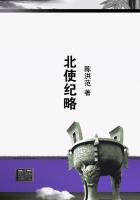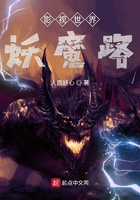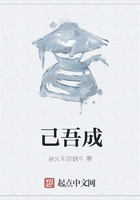I
AN officer named Zhílin was serving in the army in the Caucasus.
One day he received a letter from home. It was from his mother, who wrote: 'I am getting old, and should like to see my dear son once more before I die. Come and say good-bye to me and bury me, and then, if God pleases, return to service again with my blessing. But I have found a girl for you, who is sensible and good and has some property. If you can love her, you might marry her and remain at home.'
Zhílin thought it over. It was quite true, the old lady was failing fast and he might not have another chance to see her alive. He had better go, and, if the girl was nice, why not marry her?
So he went to his Colonel, obtained leave of absence, said good-bye to his comrades, stood the soldiers four pailfuls of vódka[4] as a farewell treat, and got ready to go.
It was a time of war in the Caucasus. The roads were not safe by night or day. If ever a Russian ventured to ride or walk any distance away from his fort, the Tartars killed him or carried him off to the hills. So it had been arranged that twice every week a body of soldiers should march from one fortress to the next to convoy travellers from point to point.
It was summer. At daybreak the baggage-train got ready under shelter of the fortress; the soldiers marched out; and all started along the road. Zhílin was on horseback, and a cart with his things went with the baggage-train. They had sixteen miles to go.
The baggage-train moved slowly; sometimes the soldiers stopped, or perhaps a wheel would come off one of the carts, or a horse refuse to go on, and then everybody had to wait.
When by the sun it was already past noon, they had not gone half the way. It was dusty and hot, the sun was scorching and there was no shelter anywhere: a bare plain all round -- not a tree, not a bush, by the road.
Zhílin rode on in front, and stopped, waiting for the baggage to overtake him. Then he heard the signal-horn sounded behind him: the company had again stopped. So he began to think: 'Hadn't I better ride on by myself? My horse is a good one: if the Tartars do attack me, I can gallop away. Perhaps, however, it would be wiser to wait.'
As he sat considering, Kostílin, an officer carrying a gun, rode up to him and said:
'Come along, Zhílin, let's go on by ourselves. It's dreadful;
I am famished, and the heat is terrible. My shirt is wringing wet.'
Kostílin was a stout, heavy man, and the perspiration was running down his red face. Zhílin thought awhile, and then asked: 'Is your gun loaded?'
'Yes it is.'
'Well, then, let's go, but on condition that we keep together.'
So they rode forward along the road across the plain, talking, but keeping a look-out on both sides. They could see afar all round. But after crossing the plain the road ran through a valley between two hills, and Zhílin said: 'We had better climb that hill and have a look round, or the Tartars may be on us before we know it.'
But Kostílin answered: 'What's the use? Let us go on.'
Zhílin, however, would not agree.
'No,' he said; 'you can wait here if you like, but I'll go and look round.' And he turned his horse to the left, up the hill. Zhílin's horse was a hunter, and carried him up the hillside as if it had wings.
(He had bought it for a hundred roubles as a colt out of a herd, and had broken it in himself.) Hardly had he reached the top of the hill, when he saw some thirty Tartars not much more than a hundred yards ahead of him. As soon as he caught sight of them he turned round but the Tartars had also seen him, and rushed after him at full gallop, getting their guns out as they went.
Down galloped Zhílin as fast as the horse's legs could go, shouting to Kostílin: 'Get your gun ready!'
And, in thought, he said to his horse: 'Get me well out of this, my pet; don't stumble, for if you do it's all up. Once I reach the gun, they shan't take me prisoner.'
But, instead of waiting, Kostílin, as soon as he caught sight of the Tartars, turned back towards the fortress at full speed, whipping his horse now on one side now on the other, and its switching tail was all that could be seen of him in the dust.
Zhílin saw it was a bad look-out; the gun was gone, and what could he do with nothing but his sword? He turned his horse towards the escort, thinking to escape, but there were six Tartars rushing to cut him off. His horse was a good one, but theirs were still better; and besides, they were across his path. He tried to rein in his horse and to turn another way, but it was going so fast it could not stop, and dashed on straight towards the Tartars.
He saw a red-bearded Tartar on a grey horse, with his gun raised, come at him, yelling and showing his teeth.
'Ah,' thought Zhílin, 'I know you, devils that you are. If you take me alive, you'll put me in a pit and flog me. I will not be taken alive!'
Zhílin, though not a big fellow, was brave. He drew his sword and dashed at the red-bearded Tartar thinking: 'Either I'll ride him down, or disable him with my sword.'
He was still a horse's length away from him, when he was fired at from behind, and his horse was hit. It fell to the ground with all its weight, pinning Zhílin to the earth.
He tried to rise, but two ill-savoured Tartars were already sitting on him and binding his hands behind his back. He made an effort and flung them off, but three others jumped from their horses and began beating his head with the butts of their guns. His eyes grew dim, and he fell back. The Tartars seized him, and, taking spare girths from their saddles, twisted his hands behind him and tied them with a Tartar knot. They knocked his cap off, pulled off his boots, searched him all over, tore his clothes, and took his money and his watch.
Zhílin looked round at his horse. There it lay on its side, poor thing, just as it had fallen; struggling, its legs in the air, unable to touch the ground. There was a hole in its head, and black blood was pouring out, turning the dust to mud for a couple of feet around.

